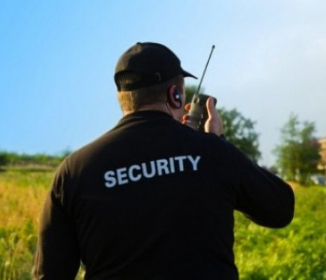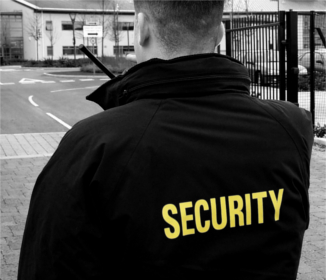Every career choice requires consideration of working hours and conditions. Security is no exception. Right from the start, we encourage those considering working as security guards to give much thought to this area. Unlike office workers who enjoy regular schedules and comfortable indoor environments, security guards work at all hours of the day and night and under a variety of environmental conditions.
The nature of security work is such that it cannot be set aside for holidays, family events, bad weather, or medical emergencies. In other words, a company providing security services must provide those services around-the-clock. Guards need to be willing to work when called upon regardless of time, day or any other factor.
Working Hours
New security guards should be prepared to work as many as 60 hours per week. Veteran guards and supervisors are the first to be offered more convenient schedules with fewer hours logged, but it takes time and experience before one is offered the best scheduling.
With that said, shifts are assigned by the security agency providing service. Guards can work any of the three shifts via a static schedule or on a rotational basis. It depends on how the agency decides to run things. Newer guards can expect to be given weekend and night shifts, as these are the least desirable of all.
Keep in mind that security work is 365 days a year. This means working on holidays is part of the job. The bright side to this is that many security agencies go out of their way to spread holiday shifts across their entire crew of guards so that the load is not being borne by just a small handful.
Working Conditions
The working conditions experienced by any one guard depend on his or her assignments. Understand that guards may not always work the same assignment for long periods; assignments may shift according to agency needs and the guards available to cover the shifts. The different working conditions you might experience as a guard include:
• Outdoors – Some security guard positions require the guard to spend the majority of his/her time outdoors. In such cases, there is usually some sort of shelter available for the guard to use when he/she is not on patrol. An outdoor position exposes the guard to all weather conditions as well as insects, animals, etc.
• Indoors – Other security positions are focused mainly on indoor work. Examples would include patrolling an office building or working in an airport terminal. Although this sort of work is not influenced by weather conditions, there tends to be a lot more interaction with people.
• Motorised – There are security positions involving a lot of driving. Transporting money or valuable property is one example; working as a motorised patrol officer is another. Weather conditions and traffic are the biggest environmental influences in this type of work.
Aside from weather and environmental factors, other things that influence working conditions are directly related to the facility or premises being guarded. For example, a manufacturing plant represents a working environment that likely would involve a significant amount of noise as well as daily interaction with employees. Working in a hospital represents the environment in which the guard is potentially exposed to airborne illnesses.
As you can see, there is a broad range of possibilities in terms of working environments for security guards. There is no way to know what environment any single guard will be exposed to until the individual begins accepting assignments. There is enough work available that agencies can usually accommodate workers who are physically unable to perform in certain working environments.
General Safety
Regardless of the hours worked and the working environment a guard is exposed to, employers have a responsibility to use all reasonable means to ensure a safe working environment for employees. This is paramount to the security guard. If a guard ever feels as though his/her personal safety is in jeopardy, speaking with supervisors is appropriate.
Most security guards will go their entire careers without experiencing any significant threats to personal safety or health. However, such threats are always a possibility. Security is, by its nature, a career that involves emergencies, confrontations, tense situations, and potential disasters. If these types of things do not bother you, there may be an opportunity for you in security.

